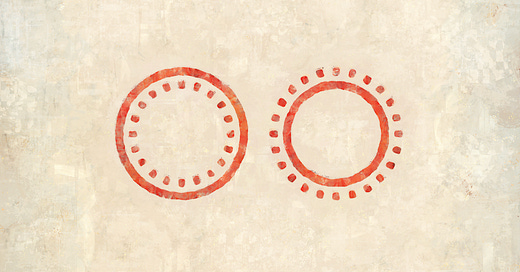The Gifts of Divine Marriage
One important characteristic of a divine marriage is that the union creates greater wisdom and capacity than the aggregate of each individual’s abilities. This synergy happens as a couple celebrates and amplifies the unique strengths of each partner. In a collaborative partnership, neither spouse is threatened by the capacity and individuality of the other, nor makes their own way-of-being superior to the other. A couple’s ability to value and benefit from individual strengths is dependent upon each partner’s willingness to let their gifts and wisdom emerge, not hiding who they are—as well as the ability to limit their ego sufficiently to amplify the gifts and aspirations of their spouse. When each partner is an equal and valued contributor, couples enjoy the happiest marriage and a marriage emulating our Heavenly Parents.
Perhaps because of its functionality, personality differences are a primary feature in romantic attraction and desire: we are compelled, in part, because the one we love embodies what we do not yet understand or haven’t yet developed in ourselves. The mystery and wonder in our beloved’s way-of-being compels and bewitches us. The inherent gift in our attraction to difference is the immediate access it gives us to a wider spectrum of capacities and perspectives. Partnering allows us to access greater intelligence and ability than we alone possess. And if we embrace this, we can then live better, parent better, provide better, and respond more adeptly to the demands inherent to life. Our ability to give what is necessary is maximized when two unique perspectives and skill sets are developed and applied. This collaborative process makes the couple stronger than either could be individually.
As valuable as this reality is, most of us resist and even resent our spouse’s divergent tendencies when they bump up against our own. While transfixed by a spouse’s spontaneity at first, we can come to resent their lack of organization when a task needs to be completed. Or while compelled initially by a spouse’s joviality, we may later begrudge their extroversion when it conflicts with our preference for solitude. Yet, to resent the very differences that we initially desired is weak and unloving of us. It is a way of resisting the responsibility to value our spouse’s strengths, and it is a way of resisting the growth that their differences invite us toward. As long as we convince ourselves that we are victims of the invalidation inherent to our spouse’s differences, we don’t have to address our own limited ability to value, support, and make room for a person who doesn’t necessarily reinforce us.
In the face of invalidating differences, many of us demand that our way of thinking and living prevail. We may even attempt to convince a spouse that capitulating to us is the definition of love—“If you love me, do what makes me comfortable!” Others instinctively avoid conflict by yielding to a disgruntled spouse to “keep the (false) peace,” but diminish their own gifts and wisdom in the process. And hiding who you are will always weaken the intimacy and honesty of your marriage. While these are very human responses—to demand or yield in the face of marital differences—these reactions come from our lesser selves and if indulged, limit the capacity and freedom in a marriage. If we hope to create a marriage of equals, and a marriage in the image of our Heavenly Parents, we must offer our strengths and honest perspectives to the marriage, while supporting the same in our spouse.
Understanding and integrating a spouse’s varying point of view can be uncomfortable, and supporting a spouse’s unique gifts and endeavors can stretch us, but making room for our spouse’s differences and strengths will expand our ability to truly love. To love another is to let them prosper, even if their strengths don’t necessarily reinforce us. To love another is to support them in the development of their gifts, even though this may mean sacrificing our time and at times our own interests. While sacrifice for the benefit of the other is inherent to a thriving marriage, marriage researchers consistently find that this is what the happiest couples do: Happy couples value their spouse’s happiness on par with their own, they encourage their spouse in their endeavors and struggles, and they are committed to their individual and mutual growth. While this kind of sacrifice can take courage, it blesses the couple with a deep sense of belonging to one another while also belonging to their own endeavors and dreams.
Divine marriages are built by allowing what is best and honest in each spouse to flourish, so those strengths can also inform and bless the marriage. If we truly celebrate the strengths in each other, we will grow into wiser, better people who thrive together in having learned how to love.
Excerpt taken from In the Image of Our Heavenly Parents: A Couples’ Guide to Creating a More Divine Marriage edited by Bethany Brady Spalding and McArthur Krishna.
Jennifer Finlayson-Fife is a licensed therapist who specializes in working with LDS couples on sexuality and relationship issues.
Art by Ben Crowder.







